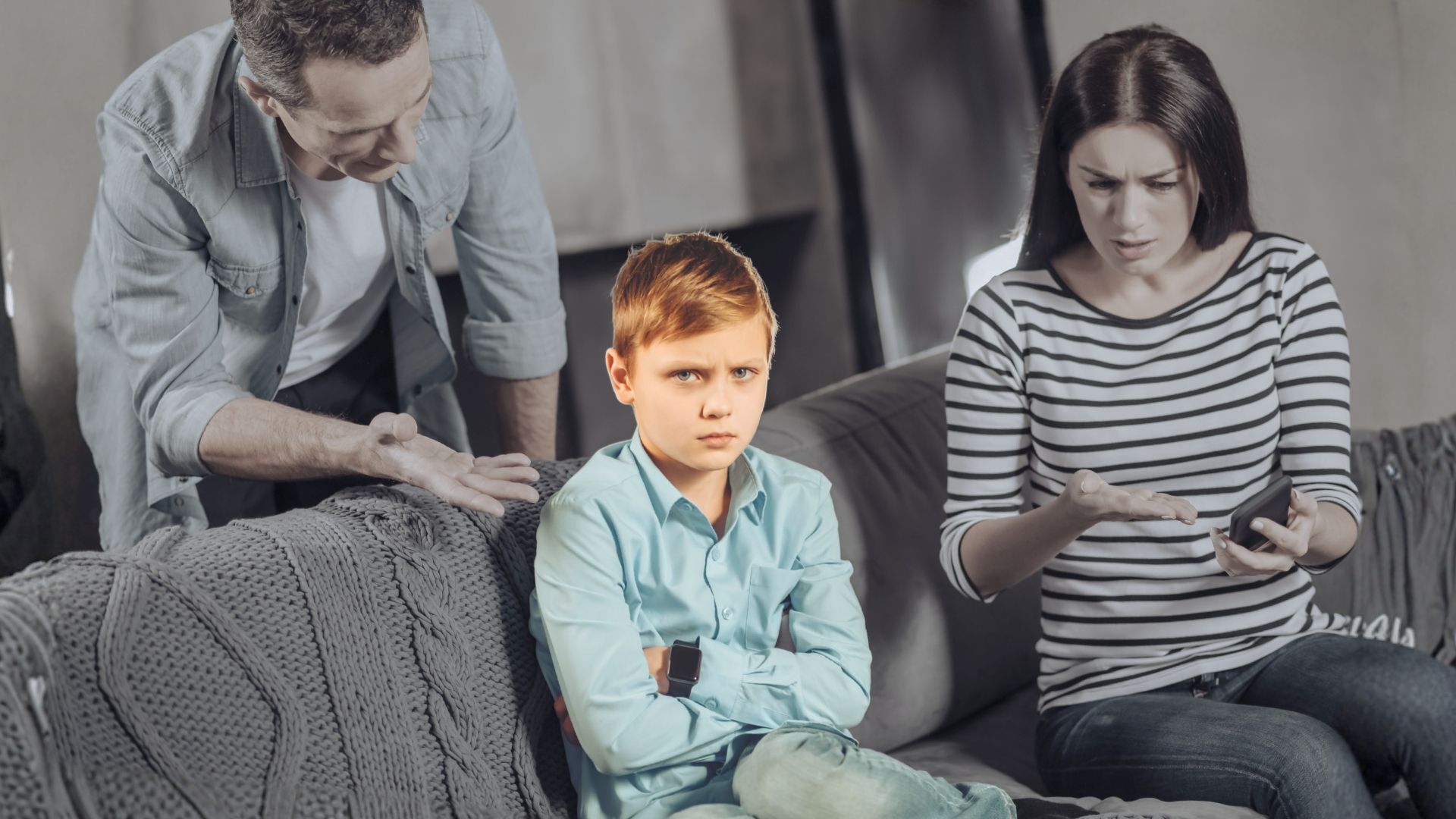ADHD Medication Facts Every Parent Should Know | Ryan Wexelblatt, LCSW, ADHD Dude

If you're reading this, you're likely facing one of the most emotionally loaded parenting decisions there is: whether or not to medicate your child for ADHD.
As both a father of a son with ADHD (who was medicated until age 20) and a licensed therapist who specializes in ADHD, I want to acknowledge how complex and personal this choice can be. You want to protect your child. You want to give them every possible advantage. And you don’t want to get it wrong.
Medication is just one part of what research shows works best; understanding the role of parent training is equally important.
This article isn’t about opinion. It’s here to give you clear, evidence-based ADHD medication facts every parent should know. You deserve access to real data, not guilt, fear, or outdated myths, so you can make an informed decision grounded in what research shows helps kids thrive.
How does untreated ADHD shape your child’s life over time?
ADHD isn’t just about being distractible or high-energy. It impacts brain development, emotional regulation, and executive functioning; systems that help a child manage time, control impulses, tolerate frustration, and complete tasks.
When ADHD goes untreated, it doesn’t just affect grades. It often influences social development, long-term confidence, family dynamics, and even employment in adulthood. The long-term risks of unmedicated ADHD include:
- Substance use
- Financial instability
- Accidents and injuries
- Academic underachievement
- Low self-esteem and emotional struggles
Let’s break down what the research actually says about each of these areas.
1. ADHD Medication May Reduce the Risk of Substance Use
One of the most common fears I hear from parents is that ADHD medication will lead to drug or alcohol abuse later in life. But evidence consistently shows the opposite.
A landmark study published in Pediatrics found that children with ADHD who were treated with stimulant medication were significantly less likely to develop substance use disorders than those who were untreated (Biederman et al., 1999). Follow-up research confirms that when ADHD symptoms are unmanaged, kids are more likely to “self-medicate” in adolescence using marijuana, alcohol, or other substances to help them focus or feel calmer (Wilens et al., 2003).
Medication helps reduce this risk by improving impulse control and emotional regulation, two key areas that influence decision-making and risk-taking in adolescence.
Many families never hear this, not because they’re not trying, but because most treatment plans start off on the wrong path.
2. Unmedicated ADHD Can Affect Long-Term Financial Stability
A study published in the Journal of Economic Perspectives found that adults with untreated ADHD earn less, change jobs more often, and experience more financial instability than those who were treated (Klein et al., 2012).
Why? ADHD interferes with executive functioning; your brain's system for managing time, organizing tasks, and making future-focused decisions. Without support, children with ADHD may grow into adults who struggle with budgeting, maintaining employment, or avoiding impulsive financial choices.
I've also seen a concerning trend among teens with ADHD engaging in online gambling or sports betting; high-risk behaviors that are directly tied to impulsivity and poor emotional regulation.
3. Unmedicated ADHD Increases the Risk of Serious Accidents
A large-scale 2014 meta-analysis involving over 17,000 individuals found that people with untreated ADHD were 50 percent more likely to be involved in accidents, including serious injuries and car crashes (Chang et al., 2014). The same study found that those on ADHD medication had significantly fewer accidents.
When children receive appropriate treatment, including medication, they gain improved focus, reduced impulsivity, and better situational awareness, all critical for safety in everyday life.
4. Treatment Improves Academic Performance
ADHD doesn’t just interfere with academics, it can erode a child’s confidence and motivation over time. Students with untreated ADHD are more likely to be suspended, held back, or referred for special education services (Barbaresi et al., 2007).
The Multimodal Treatment Study of Children with ADHD (MTA Study) showed that students who received a combination of medication and behavioral parent training had significantly better academic and behavioral outcomes than those who received community care or behavioral treatment alone (MTA Cooperative Group, 1999).
When ADHD is properly treated, kids can follow through, stay organized, and start to believe in their own ability to succeed. That shift changes how they see themselves, not just as students, but as capable individuals.
5. Unmedicated ADHD Can Undermine Self-Esteem
Children with ADHD are often corrected for things they don’t fully understand or control, talking out of turn, forgetting assignments, losing things. Over time, this constant feedback chips away at their self-image.
A European study found that children with unmedicated ADHD were significantly more likely to experience low self-esteem, anxiety, and symptoms of depression (Harpin et al., 2006).
Medication alone doesn’t solve everything, but it can give kids a fighting chance to succeed in areas where they’ve struggled, which helps rebuild emotional resilience and self-confidence.
Need a plan that actually improves behavior?
You don’t have to rush your decision. But it’s important to know that ADHD isn’t something your child will just grow out of. Left untreated, ADHD can affect nearly every area of life, often in ways that don’t show up until later.
The American Academy of Pediatrics recommends the following evidence-based treatment approach:
- For children over six: A combination of parent training and medication is the first-line treatment
- For children under six: Begin with parent training, followed by methylphenidate if needed
- School supports should be included when appropriate
It’s also worth noting that the AAP does not recommend talk therapy, play therapy, or other non-behavioral approaches as primary treatments for ADHD. While therapy can be helpful for emotional support, it does not address the core symptoms of ADHD in the way that structured, evidence-based treatments can.
If your child’s healthcare provider doesn’t seem knowledgeable about ADHD medication, it may help to consult a pediatric psychiatric nurse practitioner. Because of the shortage of child and adolescent psychiatrists, treatment has increasingly shifted toward pediatricians and nurse practitioners as frontline providers.
You’re allowed to ask questions. You’re allowed to take your time. But you also deserve access to information that helps you stop guessing.
If you're looking for a step-by-step way to support your child’s executive functioning, reduce stress at home, and build systems that work, I invite you to explore the ADHD Dude Membership. Inside the membership, I teach parents exactly how to support kids with ADHD in a way that aligns with the research and works in real life.
Learn more about the ADHD Dude Membership and see how it can help your family.
FAQ:
Q: Can untreated ADHD lead to long-term issues?
A: Yes. It’s tied to higher risks of substance use, financial instability, accidents, poor self-esteem, and academic struggles. These impacts often show up over time, not just in childhood.
Q: Will medication change who my child is?
A: No. When properly prescribed, it helps reduce impulsivity and improve focus. Many kids feel more confident and capable, not less like themselves.
Q: Do ADHD medications increase the risk of addiction?
A: No. Research shows the opposite. Kids with ADHD who take stimulant medication are less likely to develop substance use problems later in life.
Q: Is medication the only effective treatment?
A: No. For kids over six, the most effective approach combines parent training and medication. For younger kids, start with parent training, then consider meds if needed.
Q: What if our doctor isn’t giving clear answers?
A: You can seek guidance from a pediatric psychiatric nurse practitioner. It’s okay to ask more questions.
References
Barbaresi, W. J., Katusic, S. K., Colligan, R. C., Weaver, A. L., & Jacobsen, S. J. (2007). Long-term school outcomes for children with attention-deficit/hyperactivity disorder: A population-based perspective. Journal of Developmental & Behavioral Pediatrics, 28(4), 265–273.
Biederman, J., Wilens, T., Mick, E., Spencer, T., & Faraone, S. V. (1999). Pharmacotherapy of attention-deficit/hyperactivity disorder reduces risk for substance use disorder. Pediatrics, 104(2), e20.
Chang, Z., Lichtenstein, P., Halldner, L., D’Onofrio, B. M., Serlachius, E., Fazel, S., ... & Larsson, H. (2014). Stimulant ADHD medication and risk for substance use and psychiatric disorders: A Swedish national cohort study. BMJ, 347, f6172.
Harpin, V. A., Mazzone, L., Raynaud, J. P., Kahle, J., & Hodgkins, P. (2006). Long-term outcomes of ADHD: A systematic review of self-esteem and social function. European Child & Adolescent Psychiatry, 15(1), 38–45.
Klein, R. G., Mannuzza, S., Olazagasti, M. A., Roizen, E., Hutchison, J. A., Lashua, E. C., ... & Castellanos, F. X. (2012). Clinical and functional outcome of childhood attention-deficit/hyperactivity disorder 33 years later. Archives of General Psychiatry, 69(12), 1295–1303.
MTA Cooperative Group. (1999). A 14-month randomized clinical trial of treatment strategies for attention-deficit/hyperactivity disorder. Archives of General Psychiatry, 56(12), 1073–1086.
Wilens, T. E., Faraone, S. V., Biederman, J., & Gunawardene, S. (2003). Does stimulant therapy of attention-deficit/hyperactivity disorder beget later substance abuse? A meta-analytic review of the literature. Pediatrics, 111(1), 179–185.










